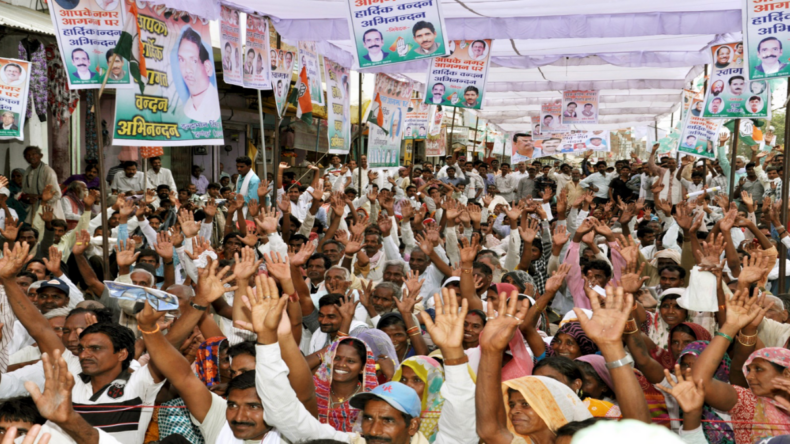On Wednesday, former Punjab chief minister Captain Amarinder Singh said he would brandish his political party in the upcoming state elections.
After receiving the nod from the Election Commission, he will announce his party’s name and symbol.
Attorneys for the captain are preparing the formal process of applying to the Election Commission to form a new state party. In February or March 2022, Punjab’s legislative assembly elections are going to happen.
REGISTRATION OF A POLITICAL PARTY:
An applicant for registration at the Election Commission must submit their application within 30 days of the party’s formation. Section 29A of the Representation of the People Act, 1951 governs the registration of all political parties.
Under existing guidelines, the application requires publication of a proposed party name in two national daily newspapers and two regional daily newspapers and 30 days for submitting any objections concerning the party’s proposed registration.
Notices for publication are also can view on the Election Commission’s website.
HOW IT WORKS:
A political party must submit a form for registration within 30 days of its formation to the Secretary to the Election Commission by registered mail or deliver it personally. You can request the format by post or by visiting the EC office in person, and it is also on their website.
Demand drafts for Rs10,000 are compulsory with the application. In addition, a printed copy of the party memorandum, the party constitution, and its rules and regulations is necessary.
Party constitutions, laws, regulations, or directives should stipulate when organizational elections should occur at different levels, the frequency of these elections, and terms of office for office-bearers.
To show that party members are registered electors, they must also have the latest electoral rolls for at least 100 of their members.
A notary public or oath commissioner must swear that no party member is a member of any other political party registered with the Commission. In addition, at least 100 members submit affidavits to prove that they aren’t associated with any other political party.
PURPOSE OF REGISTERING WITH THE EC:
Registration with the Election Commission is not mandatory. However, it has its advantages concerning the Act on Representation of the People (1951) (relating to registration of political parties).
EC-registered political parties will provide preference in the allotment of free electoral symbols over purely independent parties. In addition, over time, these parties can become recognized as ‘state parties’ or ‘national parties’ by fulfilling the condition prescribed by the Commission in the Election Symbols (Reservation and Allotment) Order, 1968.
Upon recognition as a ‘state party,’ a party is entitled to offer its reserved symbol exclusively to the candidates established within the state where it has been so recognized.
A party identified as a ‘national party’ is entitled to allot its reserved symbol exclusively to its candidates throughout India. National and state-recognized parties need only one proposer to file their nominations.
They also qualify for two sets of electoral rolls free of charge and broadcasting facilities over state-owned Akashvani/Doordarshan during general elections.
PARTIES AS STATE OR NATIONAL PARTIES
The European Commission does not automatically grant the status of ‘state party’ or ‘national party’ to every party that registers with them. The Commission follows several conditions to determine the classification of each party.
A political party in a state is regarded as a recognized party if it meets the requirements of Clause (A) or Clause (B). The party should have been engaged in political activity for five years and have gotten back on track to the state’s Legislative Assembly at the last general election.
- For every 25 members of the House of people or a fraction thereof, each state should have at least one member.
- at least one legislator from every thirty members of that assembly or a fraction thereof.
Clause (B) states “the total number of valid votes polled by every contesting candidate fielded by such party at the latest general election held in such state.
“Accordingly, the number of valid votes polled by all contesting candidates at a general election in the state shall not be less than six percent of the total valuable ballots.”
Identifying a national party depends on being recognized as a political party in four or more states before being considered a national party throughout India.
Nevertheless, it will only be classified as one if four or more states vote in a subsequent general election to the House of the people or any state’s legislative assembly.
Differently, political parties are maintained if they are in less than four states. No matter how the party performs in the general election results, the party will only obtain official recognition as a state party based on the results of legislative elections.













